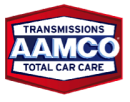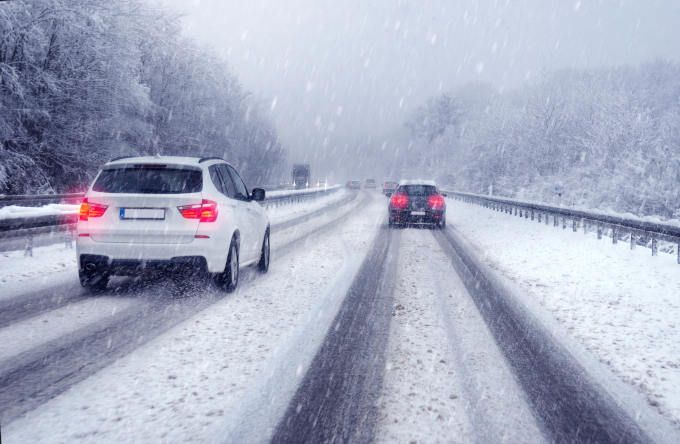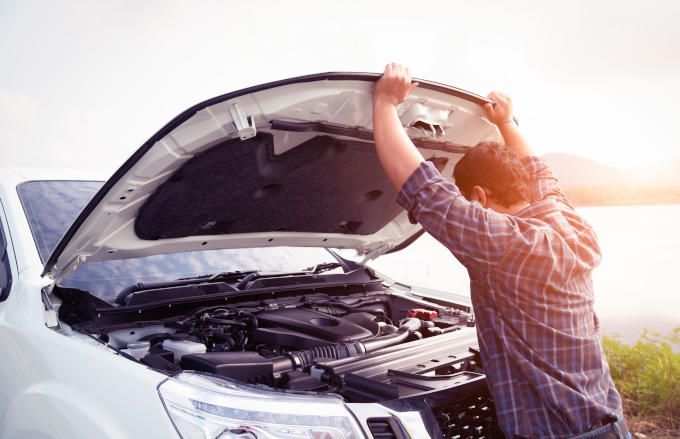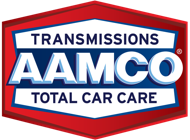Stopping Power: 5 Signs You Need Your Brakes Checked
Don’t let brake problems put a stop to your plans.
If you've ever wondered how to know if your vehicle is due for a brake check, read on for five tell-tale signs of brake problems and how to fix them. With the right knowledge—and a local brake expert—you can stay safe while on the road in the NY/NJ/CT Tri-State Area.
What Are Brakes?
Before diving into the signs to get your brakes checked, let’s briefly review how they work.
Most vehicles have what are called “disc brakes.” They consist of a brake rotor (the large, flat metal disc that the vehicle’s wheels sit on) and a brake caliper (a device containing the brake pads and helps press them against the rotor).
When you step on the brake pedal, hydraulic fluid is sent to the caliper, which squeezes the brake pads against the rotor. That contact creates friction, slowing down or stopping the vehicle’s wheels from turning.
Over time, the brake pads wear down from that friction and need to be replaced.
The rotors can also become warped or damaged and may need to be resurfaced or replaced. By knowing the signs of brake problems, you can have them fixed before they cause serious damage—or worse, an accident.
5 Signs You Need to Get Your Brakes Checked
1. Your Brake System Warning Light Is On
One of the most obvious signs you need to get your brakes checked is if your brake warning light comes on. Your vehicle's brake warning light is connected to the brake system and is designed to come on when there's a problem. It’s worth noting that not all vehicles have a brake warning light (it’s more common in luxury or older models).
If you see your brake light come on, it's vital to get your vehicle to a NY Tri-State brake specialist as soon as possible.
They can diagnose the problem and determine if it's something serious, like a leak in the hydraulic system, or something more minor, like a brake pad that needs to be replaced.
2. Your Brakes are Squealing or Squeaking
If you hear a high-pitched squeal when you step on the brakes, you likely have worn-out brake pads. Most vehicles have a little metal tab called a “wear indicator” that rubs against the rotor when the brake pads are low. This works as an early warning system to alert drivers to get their brakes checked.
If you wait too long, the wear indicators will wear down, and you'll start to hear grinding noises when you step on the brakes, which means the metal backings of the brake pads are rubbing against the metal of the rotor. If you hear this grinding, it's essential to get to a technician right away. Driving on brakes that are this worn down can damage the rotors beyond repair and will be much more expensive to fix.
3. Your Brake Pedal Feels “Mushy”
If you step on the brake pedal and it feels “mushy” or “spongy,” it could be a sign of a leak in the brake system. When there's a leak, the brake fluid can't do its job, and you won't have as much stopping power.
A mushy brake pedal is also an indication that your vehicle's brakes need to be serviced as soon as possible. A technician can check for leaks and, if necessary, replace the brake fluid.
4. Your Vehicle Is Pulling to One Side
If it feels like your vehicle is pulling to one side when you step on the brakes, there may be a problem with the brake caliper on that side. When the caliper gets stuck, it can cause the brake pads to wear down unevenly and may even damage the rotor. A technician can determine if the problem is with the caliper or something else—like a problem with the alignment.
5. Your Brake Pedal is Pulsating
If you feel a pulsating in the brake pedal when you step on the brakes, your rotors are likely warped. When rotors warp, it causes an uneven surface that can cause the brake pads to vibrate when they make contact.
In some cases, a technician can resurface the rotors to fix the problem. But if they're too damaged, they'll need to be replaced.
Common Brake Questions
Q: How often should I get my brakes checked?
A: It's generally recommended that you get your brakes checked at least once a year. But if you frequently drive in stop-and-go traffic (like many areas of the NY Tri-State region) or live in a hilly area, you may need to check them more often.
Q: How much does it cost to get brakes checked?
A: The cost of a brake check will vary depending on the brake specialist and the type of vehicle you have. Many auto shops offer a free or low-cost brake check.
Q: What happens if I don't get my brakes checked?
A: If you don't get your brakes checked, it could lead to serious problems, resulting in brake failure. It's also important to note that if you wait too long to get your brakes serviced, it can be much more expensive to fix the problem.
Q: What should I do if my brakes fail while driving?
A: If your brakes fail while you're driving, the first thing you should do is try to stay calm. Then, if you have brake pedal resistance but it is just grinding, pulsating, or spongy, slow down using your regular brakes and bring the vehicle to a specialist as soon as possible.
If the brakes fail “completely” with the brake pedal rapidly going to the floor, try pumping the brake pedal to slow the vehicle down and stop. If this method also fails, then try and use the parking brake to slow the vehicle down, bring the vehicle to a stop, and have the vehicle towed. Many vehicles use electronic actuated parking brakes that do not work in that manner and will not apply with the vehicle in motion.
We Can Stop Your Brake Problems
Brake problems can be scary, especially if you're unsure what's wrong. But the best thing you can do is stay calm and bring your vehicle to an auto technician as soon as possible. Visit a local NY/NJ/CT AAMCO Center near you. A skilled technician will be able to diagnose the problem and get you back on the road in no time.
Don't let brake problems keep you from hitting the road this summer. Schedule a brake check today!
Expect the Best
AAMCO has over 60 years of experience delivering total car care, from the transmission to tune-ups for more than 20 million vehicles. Customers depend on us for:
- Exceptional customer service
- The latest technology for diagnosis and repair
- Expert technicians who “fix it right the first time.”
- Best warranty coverage available
- Convenient payment options with up to 12 months of interest-free payments
AAMCO Centers of the NY/NJ/CT Tri-State Area represent trust, quality, and value. If you’re having an issue with your vehicle, call us today!
Share




